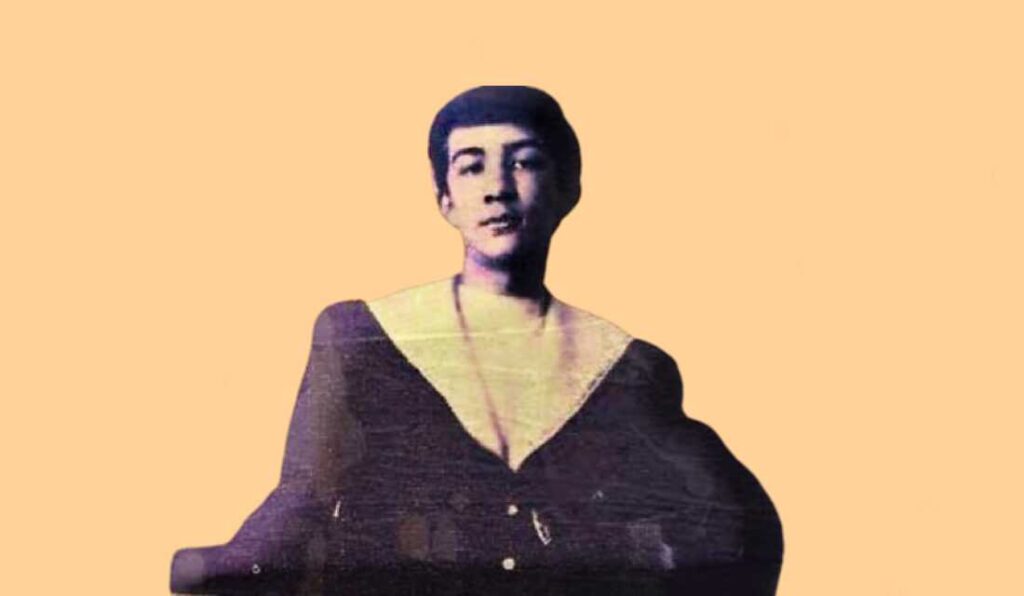81 years have passed since the suicide of poet Napoleon Lapathiotis on 7 January 1944, in German-occupied Athens. Α “bohemian” poet, one of the “cursed poets” of Greek literature, Napoleon Lapathiotis (1881-1944) is considered one of the most important poets of the neo-symbolist and neo-romantic school. A fan of Oscar Wilde, the sensitive, romantic but sharp poet wrote poems clearly influenced by aestheticism, while much later his melancholic mood leads him to symbolism. His poetry thus became a window to human condition. He wrote in a simple yet touching way about basic emotions such as love, joy, sadness, pain, memory, disappointment, death, etc.

Accounts of the Lapathiotis family’s Cypriot roots mainly refer to the family patriarch, Hadjielias, a victim of the massacres of 9 July 1821; the enduring memory of the family in Lapithos; and Leonidas Lapathiotis’s visit to his ancestral home in 1895–1896.
Napoleon Lapathiotis’s great-grandfather, Hadjielias, a notable of Lapithos, was among the innocent victims of the Turkish massacres of 9 July 1821. In Lapithos, the “Hadjielias Mill,” in the Agia Paraskevi parish of the “Upper Parishes,” operated until 1968, a few years before the Turkish invasion and displacement. Hadjielias’s son, Theocharis (b. 1807), managed to escape to Greece, participated in the 1821 revolution, and, after liberation, served in the police force, adopting the surname “Lapithiotis,” later refined to “Lapathiotis.” He retired in 1878 with the rank of major and passed away in 1886. His son, Leonidas (1854–1941), was one of the most capable and knowledgeable officers of his era, a Member of Parliament (1903–1905), and Minister of Military Affairs following the Goudi coup in 1909.
Napoleon was the beloved only child of Leonidas Lapathiotis and Vasiliki Papadopoulou, niece of Charilaos Trikoupis, from the Mesolonghi family of Razikotsikas. He entered the literary world at a young age, writing poems that became much loved, and scandalised conservative Athenian society for years with his unconventional behaviour and sexual orientation, and “unorthodox” choices. He spent most of his life in his family home on Strefi Hill, in Exarchia, where he eventually ended his life. In recent years, Lapathiotis, one of the “accursed” suicides of modern Greek literature, has attracted intense interest from scholars and philologists. Significant studies on his life and work have been published in Athens, and many of his poems have been set to music. Publications have also highlighted his Cypriot connections, as he had many Cypriot friends, mainly students. Recently, Lefteris Papaleontiou republished an extensive obituary by Tefcros Anthias from March 1944 for Lapathiotis, a “true poet,” with whom Anthias often crossed paths in the challenging, marginal trails of the magical “vagabond life.” Here is a small excerpt:
“Napoleon was seen only by midnight and shadows. Rarely, very rarely, could one see him at dusk or sunset. (…) We were insignificant ‘youngsters.’ He was famous, with an enviable position in modern Greek letters. And we accompanied his ascetic steps—oh, how alone he remained, even though he was among us—on the streets, the alleys of the desolate park, the distant neighbourhoods, the modest and remote cafés, most often in Kolonaki, where around six in the morning, our literary revelry would end with the final Greek coffee.”
Lapathiotis’ poem, Fall Song
Autumn, I loved you when the leaves fall
And leave the branches naked for winter’s icy bites,
When the evenings flee, the poms are apple red,
And lonely are the nights….
And stand I now and ask: what fate and what storm,
While alone sailing the abysmal depths of mort,
Strangely and hopelessly has brought me now forlorn
A beggar in your court….
And when the dinner ends and night falls,
And quietly, like books, the light dies in the sky
I come back looking for my lost peace of old,
Like a charity from up high….
I loved you fall, when the leaves fall and
Leave the branches, and lonely is each night.
But did I really love you – or is just the shiver
Of the coming winter’s icy bite….
Also read: ON THIS DAY: Albert Camus dies in a tragic car accident (1960)
Photos source: Limassol Today
Source: papapolyviou.com/ greeknewsagenda.gr


